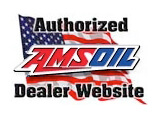19 Feb Fuel Quality Critical to Diesel Performance
Diesel fuel quality varies by location depending on the nature of the crude oil and refining practices used to make it. AMSOIL diesel fuel additives are designed to address variations in diesel fuel quality. In the first of a three-part series,
Diesel Fuel Defined
Diesel fuel is any liquid fuel used in a diesel engine. The most common type is a specific fraction distillate of petroleum fuel oil often called petro-diesel to distinguish it from non-petroleum alternatives, including biodiesel, biomass-to-liquid (BTL) or gas-to-liquid (GTL) diesel.
Diesel fuel is heavier and oilier than other types of fuel. It has a complex chemical structure with many different compounds. Compared to gasoline, diesel evaporates more slowly and features higher energy density (approximately 147,000 BTUs/gal. vs. approximately 125,000 BTUs/gal. for gasoline). Increased fuel efficiency is one reason diesel vehicles continue gaining favor in the U.S.
Ultra-Low-Sulfur Diesel Fuel (ULSD)
Hydro-treating, a refining process that removes sulfur, produces ULSD, which became widely available in the U.S. in 2006. ULSD is diesel fuel with no more than 15 ppm sulfur. Environmental Protection Agency (EPA) requirements dictated that ULSD comprise 80 percent of the highway diesel fuel in the U.S. The percentage increased to 100 percent in 2010. These fuel requirements, coupled with advanced emission-control technologies, decrease emissions from newer engines by more than 90 percent and help decrease emissions from older diesel engines, too.
Increased Pump & Injector Wear
To guard against catastrophic wear, diesel fuel must have a minimum level of lubricity. Diesel lubricity is largely provided by trace levels of naturally occurring polar compounds that form a protective layer on metal surfaces. The hydro-treating process used to reduce sulfur can alter these compounds and reduce lubricity, increasing wear to the fuel pump and injectors and possibly leading to engine failure. As such, the lubrication properties of fuel have become a key parameter of diesel fuel specifications, particularly in ULSD.
Biodiesel
Biodiesel – a biodegradable, renewable source of energy – continues to command interest. Biodiesel fuels are made from agricultural or animal products, such as corn, coconut, chicken or fish. Agricultural oils have high concentrations of fatty acid methyl esters, which provide better performance than animal-based oils. Due to the ester content of the fuel, using low levels biodiesel can increase the life of fuel injection equipment that relies on the fuel for lubrication.
Biodiesel is commonly blended with diesel for the retail marketplace. Biodiesel can be used in pure form –100 percent biodiesel is referred to as B100 – or may be blended with diesel at any concentration to be used in most diesel engines. Common blends include B2, B5 and B20. Tests have shown that the addition of a small amount of biodiesel can significantly increase the lubricity of fuel. However, biodiesel can negatively affect gaskets, seals and hoses due to the different solvent properties of the fuel.
How Quality is Measured
The principal measure of diesel fuel quality is its cetane number, a measure of the fuel’s ignition quality. Cetane number influences combustion. Requirements depend on engine design, size, nature of speed and load variations and starting and atmospheric conditions. A higher cetane number indicates that the fuel ignites more readily and burns more completely when sprayed into hot compressed air.
In the U.S., the Standard Specification for Diesel Fuel Oils (ASTM D975) establishes a minimum cetane requirement of 40. Most diesel fuel sold in North America has a cetane value between 40-45. Diesel engines operate best on fuel with cetane values of 50 or higher. To protect diesel fuel-injection equipment, ASTM D975 requires diesel fuel to meet a lubricity requirement of a maximum wear scar diameter of 520 microns in the High Frequency Reciprocating Rig Test (ASTM D6079).
AMSOIL diesel fuel additives compensate for variations in diesel fuel quality. Diesel Injector Clean (ADF) adds lubricity to ULSD, maximizing pump and injector life while increasing horsepower and fuel economy. Diesel Cetane Boost (ACB) raises the cetane of fuel up to seven numbers for maximum power and performance.

